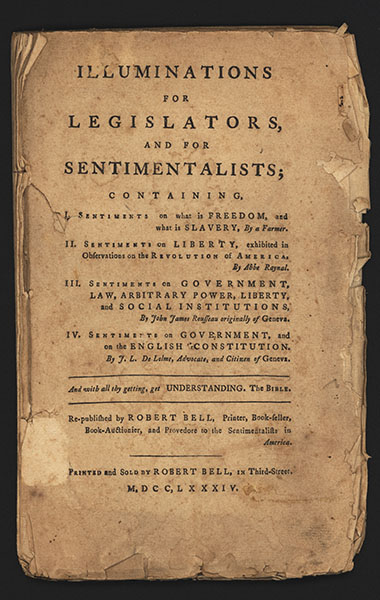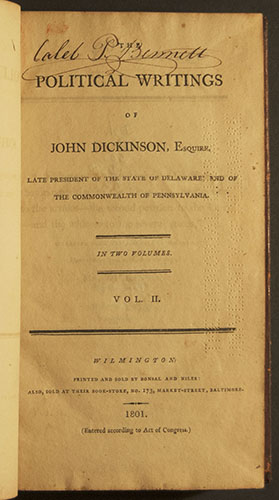John Dickinson, The Letters of Fabius, in 1788, on the Federal Constitution, and in 1797, on the Present Situation of Public Affairs. Wilmington: From the office of the Delaware gazette, by W.C. Smyth, 1797.
The Letters of Fabius are among Dickinson’s most important political writings in defense of the work of the Constitutional Convention. Dickinson chose the pseudonym “Fabius” in honor of Quintus Fabius Maximus (c. 280 BC – 203 BC), the Roman general whose guerilla warfare strategy helped save the Empire from the invading armies of Hannibal and was subsequently adopted by General George Washington as a strategy against the British forces. Dickinson writes in favor of the new Constitution and warns against the danger to the fledgling nation should it fail to be ratified.
This copy bears the signature of Caleb P. Bennett, a veteran of the American Revolution and the War of 1812, who served as Governor of Delaware.
John Dickinson, Autograph letter to Joseph Bringhurst, [n.d.], 1 p.
Dr. Joseph Bringhurst (1767-1834) maintained a successful medical practice in Wilmington, Delaware. Bringhurst was also a politically engaged and socially active member of post-Revolution American society. Most notably, he was an intimate friend of fellow Quaker and prominent Revolution-era figure John Dickinson. Bringhurst was a frequent correspondent of Dickinson’s and in this letter to his good friend, Dickinson recounts a dream he had involving Ziba Ferris, who was the father of Bringhurst's wife, Deborah Ferris Bringhurst.



